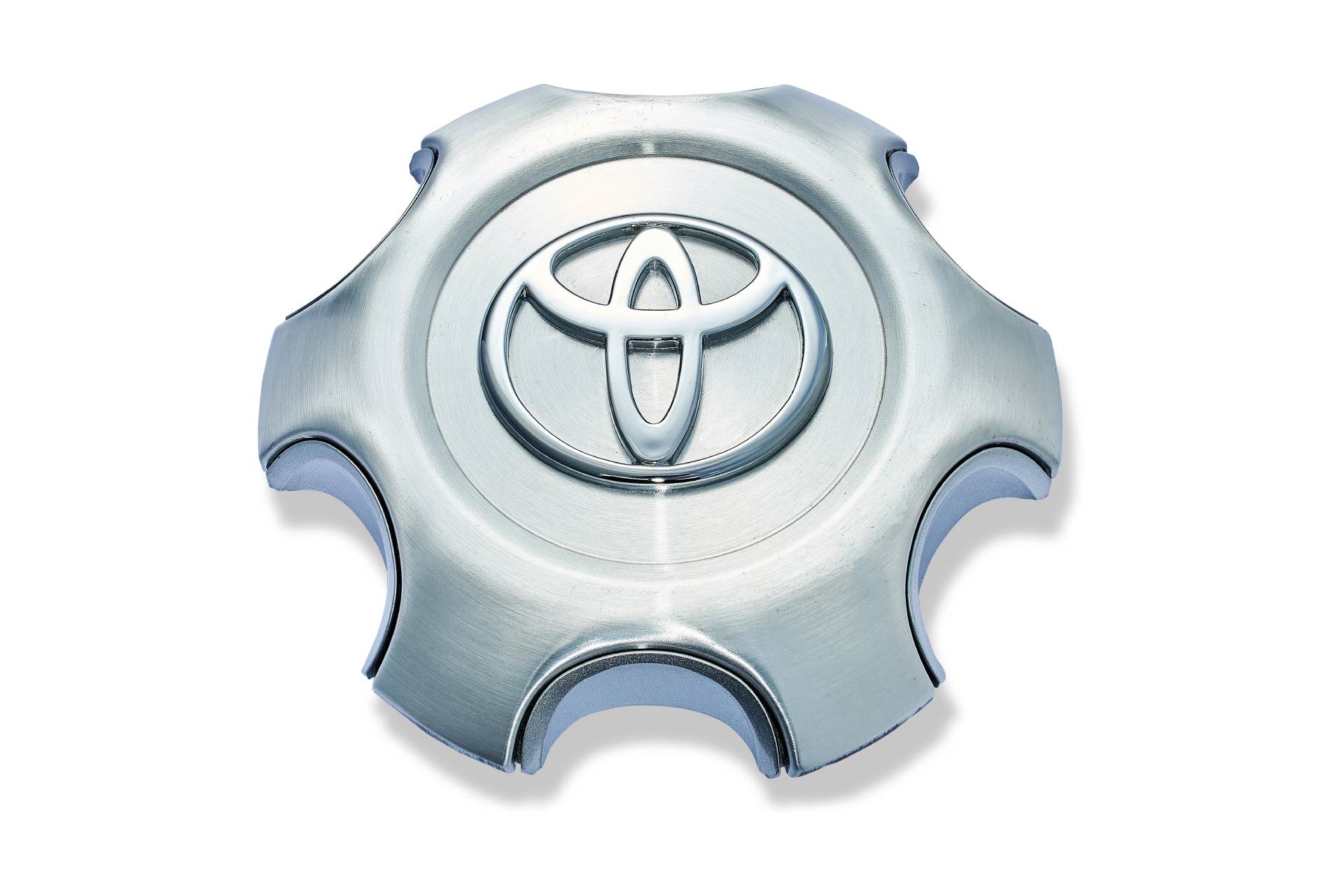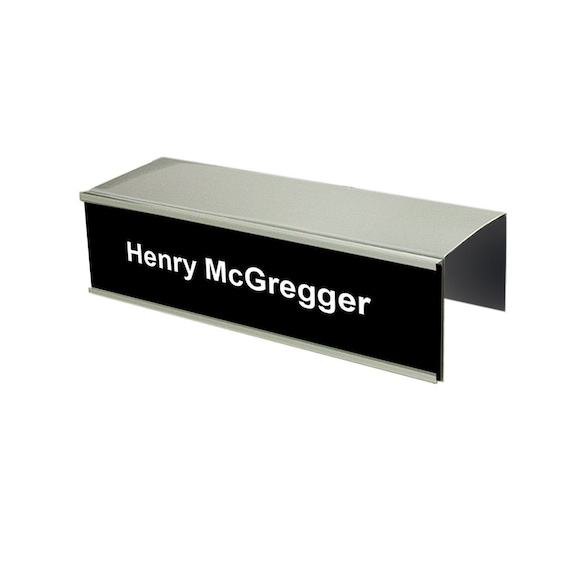How Plastic Nameplates Reinforce Corporate Identity and Recognition
How Plastic Nameplates Reinforce Corporate Identity and Recognition
Blog Article
Exactly How Plastic Nameplates Are Made: A Comprehensive Guide to Their Production Refine
The manufacturing of plastic nameplates entails numerous exact actions, beginning with the choice of ideal materials to the final complements. Each phase is essential, ensuring the item satisfies details requirements for sturdiness and appearances. Different manufacturing techniques play a significant function in crafting these nameplates. Recognizing these processes can clarify the intricacies behind what could feel like a straightforward product. What factors add to the quality and customization of these nameplates?
Comprehending Plastic Materials Used for Nameplates

The Layout Refine: From Principle to Model
The design procedure for plastic nameplates begins with a clear concept that overviews the general creation. Developers team up with customers to specify the objective, style, and particular needs of the nameplate. This initial stage includes brainstorming sessions, mapping out ideas, and picking shades and font styles that straighten with branding goals.Once the idea is established, designers utilize computer-aided style (CAD) software program to develop detailed digital representations. These prototypes permit visualization and changes before moving ahead. Responses from stakeholders is important during this stage, as it helps fine-tune the layout to satisfy expectations.After wrapping up the digital prototype, a physical model may be produced, usually with methods like 3D printing. This concrete depiction makes it possible for more analysis of appearances and functionality. Overall, the design process is a crucial action that lays the structure for the efficient manufacturing of top quality plastic nameplates.
Reducing and Shaping the Plastic
In the cutting and shaping stage of plastic nameplate manufacturing, the selection of products plays a vital function in establishing the end product's quality and durability (Plastic Nameplates). Different precision cutting strategies, such as laser cutting and CNC machining, warranty that the plastic is formed with precision and consistency. This combination of cautious product option and advanced cutting methods is essential for generating top notch nameplates

Product Option Refine
Choosing the right material is important for producing high-grade plastic nameplates. Numerous types of plastics are readily available, each offering distinctive benefits and characteristics. Typical options include acrylic, polycarbonate, and PVC. Acrylic is preferred for its clarity and UV resistance, making it ideal for outside applications. Polycarbonate, known for its longevity and effect resistance, appropriates for atmospheres that need boosted protection. PVC is typically selected for its cost-effectiveness and convenience in style. The choice process additionally takes into consideration aspects such as surface area, shade, and thickness surface, which can considerably affect the final appearance and performance of the nameplate. Inevitably, the chosen product has to align with the meant usage and aesthetic objectives of the plastic nameplate.
Accuracy Cutting Techniques
While selecting the suitable material prepares, accuracy cutting strategies play a crucial duty fit the plastic nameplates into their last forms. Numerous methods, including laser cutting, CNC milling, and die cutting, are utilized to achieve precision and uniformity. Laser cutting uses concentrated light to generate clean sides and detailed styles, perfect for intricate patterns. CNC milling supplies convenience by getting rid of excess material with precision, fitting different densities and forms. Die reducing, on the various other hand, allows for mass manufacturing of consistent items, improving performance. Each method is chosen based upon the design specifications and the desired finish, making certain that the end product satisfies top quality requirements and client assumptions while preserving durability and aesthetic appeal.
Printing Techniques for Personalization
How can suppliers attain accurate and vibrant layouts on plastic nameplates? The answer hinges on various printing techniques customized for modification. Digital printing has actually gotten popularity due to its ability to produce high-resolution pictures and detailed designs directly onto plastic surface areas. This method permits for quick turnaround times and marginal setup prices, making it perfect for brief runs and customized orders.Screen printing continues to be one more widely made use of strategy, especially for bigger amounts. It involves creating a stencil and using layers of ink, resulting in abundant shades and durability. UV printing, which utilizes ultraviolet light to cure the ink, is likewise efficient, providing outstanding attachment and resistance to fading.Additionally, pad printing supplies versatility for irregularly designed nameplates, permitting comprehensive styles on challenging surface areas. These printing approaches enable suppliers to fulfill diverse client requires while guaranteeing top quality and longevity in their plastic nameplate products.
Surface Area Therapies and Finishing Options
,aspect=fit)
Top Quality Control Actions in Manufacturing
Ensuring the greatest standards of quality control during the production of plastic nameplates is necessary for keeping product honesty and consumer fulfillment. Producers implement strenuous inspection methods at numerous phases of the manufacturing procedure. Raw materials undergo detailed screening to verify they fulfill specs for durability and shade uniformity. During the molding stage, go to this web-site automated systems keep track of specifications such as temperature and pressure to avoid defects.In enhancement, visual assessments are conducted to recognize any type of surface imperfections or imbalances. As soon as the nameplates are produced, they go through useful tests, including attachment tests for printed aspects and anxiety examinations for sturdiness. Quality control teams commonly use analytical sampling techniques to analyze batches, ensuring that any type of deviations from standards are promptly dealt with. This detailed approach not only enhances product quality yet likewise promotes trust with customers, attesting the supplier's dedication to quality in every nameplate produced.
Product packaging and Circulation of Finished Nameplates
The packaging and distribution of ended up plastic nameplates are critical steps in guaranteeing they reach consumers in ideal condition. Different product packaging materials are chosen to secure the nameplates during transportation, while shipping techniques are thoroughly picked based on effectiveness and cost-effectiveness. Additionally, reliable storage options are executed to keep high quality until the nameplates are provided.
Packaging Materials Used
Picking ideal packaging materials is essential to assure their protection throughout transit when distributing finished plastic nameplates. Commonly used materials consist of bubble cover, foam extra padding, and cardboard boxes, all created to cushion the nameplates against impacts and shocks. Bubble wrap gives a flexible obstacle, while foam cushioning warranties that nameplates remain safely in position, minimizing the danger of scratches or breakage. Furthermore, durable cardboard boxes are made use of to consist of the nameplates, providing structural assistance and defense from exterior aspects. Tags may be applied to show handling guidelines or fragile materials, additionally enhancing security during transportation. Overall, utilizing high-quality product packaging materials significantly adds to the stability and presentation of the completed plastic nameplates upon arrival at their location.
Shipping Approaches Employed
Efficient distribution of completed plastic nameplates relies upon different delivery approaches that ensure protected and timely distribution. Firms usually use messenger solutions, products shipping, and postal services, relying on the dimension, weight, and location of the packages. For regional shipments, copyright services offer fast transit, ensuring nameplates get to customers rapidly. For larger orders, freight shipping is favored, making use of vehicles or delivery containers to deliver mass quantities successfully. Post offices work as a cost-effective option for smaller deliveries, particularly for domestic distributions. All delivery methods focus on protective packaging to avoid damage throughout transit. Tracking systems are additionally made use of to monitor shipments, giving customers with real-time updates and confidence concerning the standing of their orders.
Storage Solutions Implemented

Frequently Asked Questions
What Kinds Of Organizations Frequently Make Use Of Plastic Nameplates?
Plastic nameplates are frequently used by numerous services, including offices, schools, manufacturing facilities, and hospitals. These nameplates serve essential features such as identification, info display screen, and branding, adding to organizational effectiveness and specialist appearance throughout diverse settings.
For how long Does the Entire Manufacturing Refine Take?
The production process period differs based on intricacy and amount, generally varying from a couple of days to several weeks. Aspects affecting this timeline consist of layout approval, product accessibility, and manufacturing techniques utilized by the firm.
Can Plastic Nameplates Be Recycled After Use?
Plastic nameplates can be recycled, supplied they are made from recyclable products. The schedule of reusing programs and neighborhood policies visit this page may impact their recyclability. Proper disposal practices are important to guarantee effective recycling.
What Are the Ecological Impacts of Plastic Nameplate Production?
The environmental effects of plastic nameplate production consist of carbon exhausts, source deficiency, and pollution from making processes. Plastic Nameplates. Additionally, incorrect disposal adds to plastic waste, detrimentally influencing environments and wild animals, highlighting the demand for lasting practices
Are There Any Type Of Security Worry About Plastic Nameplates?
Safety and security concerns pertaining to plastic nameplates primarily entail potential chemical exposure during production and the risk of products degrading with time, which may result in dangerous substances being released, impacting both human health and wellness and the environment. While different products can be made use of for nameplates, plastic stays a prominent selection due to its convenience and toughness. In the cutting and forming phase of plastic nameplate manufacturing, the option of products plays a necessary role in determining the final item's top quality and sturdiness. Selecting the appropriate material is vital for producing high-grade plastic nameplates. While choosing the proper product lays the foundation, accuracy cutting methods play an important role in forming the plastic nameplates into their final kinds. When distributing ended up plastic nameplates, picking suitable product packaging materials is important to assure their defense during transportation.
Report this page